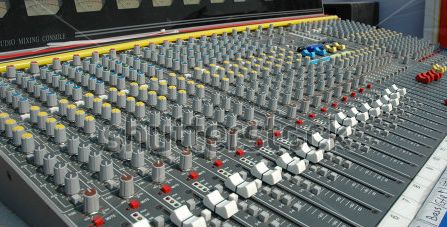
Q&A: BEHIND THE DESK
with Lars Chriss
We know there are a lot of starting musicians out there with questions regarding songwriting and recording. HeadBangers LifeStyle offers you the chance to address your questions to an experienced musician, songwriter, technician and producer: Lars Chriss. To introduce this Q&A section we’ll start with some general questions, which we hope will be of any help. If you have questions yourself feel free to mail them to us at info@headbangerslifestyle.com and Lars will answer them.
Q. Can you give us some tricks for writing a cool rock song?
A. ,,Most POP and ROCK songs are built on repetition and I believe in the classic structure of verse, pre-chorus, chorus, verse, pre-chorus, chorus some middle 8 with vocals, solo or both then back to pre-chorus and chorus, because that’s what most people are used to. When you write an album I think it’s important to have a good variation of tempo, key and song structure though. Skip the pre-chorus and only have verse and chorus etc. Hooks are very important so people remember something catchy from the song afterwards. It can be a guitar or synth riff, great vocal melody or even a drum pattern. Of course there are no set rules to writing a good song, so be adventurous and experiment a lot.’’ Q. What’s the most common mistake bands make when they record an album/ start recording?
A. ,,Only because people have a home studio they are not necessarily great engineers and producers. I often receive very poorly recorded files that people expect me to mix to sound like their favorite album or something. Sure we can re amp, trigger, auto-tune etc. these days, but the better recorded and performed multi tracks, the better end result. Simple as that! I understand the budgets are small these days, but I suggest you hire a professional engineer to help with mic placements and make sure it’s a clean signal getting recorded. If you have production ideas it’s better to do all this in the mix instead of recording with effects that you can’t get rid of or change once recorded. Also very important to do fades (in and out) and cross fades on your files to avoid digital pops and cracks.’’
Q. What’s the purpose of pre-production?
A. ,,Sometimes it’s hard to hear all the details in the rehearsal room. In pre-production you can go into detail in finding the right tempo, song structure and arrangements for the song in a simple studio. If you have a producer, he or she will be involved at this point as well. When you listen back and are happy with everything except the sound of the mix, then it’s time to start the actual recordings in a proper studio and pretty much do it all over again, only with better sound and hopefully better performance as well.’’
Q. Is there something like a general blueprint for recording? (Always the same order? Drums, bass, guitars, vocals?)
A. ,,Not really. Back in the day most bands performed at the same time with the main goal of getting a great drum track. Some kept every instrument and only punched in to change some bad note here and there. Some built instrument by instrument over that drum track. Vocals and guitar solos are usually done as over dubs though. These days you can pretty much start with a digital arrangement if you wrote the song in a computer and replace instrument by instrument. Keys, vocals and guitars can be recorded to a drum machine and then the drummer comes in and play to that plus a click track. It’s usually a good thing to record the final bass after the drums so you can be tight on the kick drum and maybe follow certain drum fills. Again there are no set rules, but there is a reason why most people do it in a certain way.’’
Q. How do you get the perfect set up in the studio?
A. ,,A good recording room is always nice especially for live drums. However since we have all this digital plugins these days it is possible to re-create a lot of environment with effects to make it sound like you were in a big expensive studio. When recording vocals I think it’s very important to have a “dead room” so you don’t get the natural room ambience recorded. This will cause problem in mix when you start compressing and adding reverb and delay. Good microphones and placements will make a better mix. I prefer to have most frequencies un-touched so I can make choices in the mix, A well recorded dry and clean signal you can take in any direction during mixing.’’
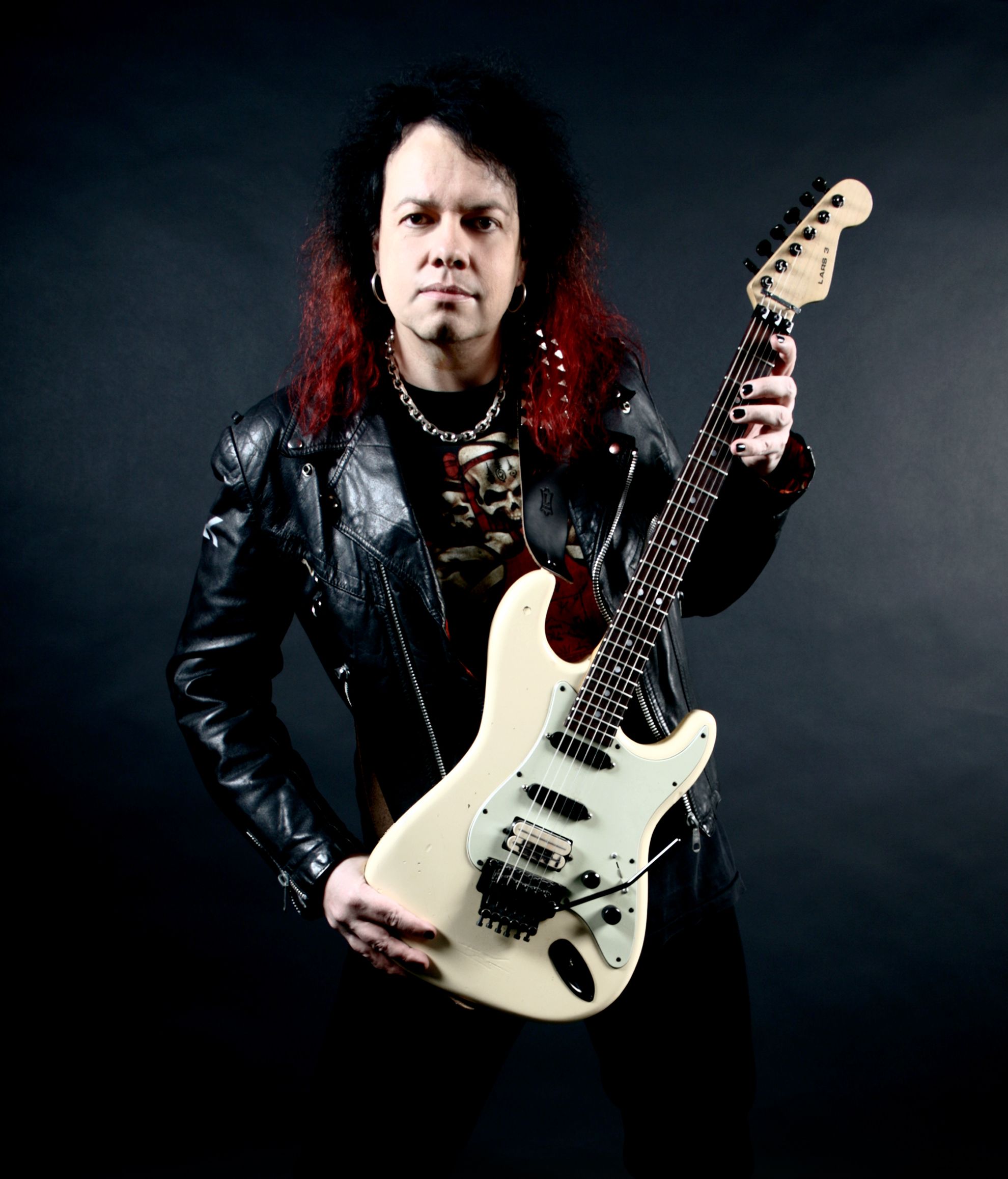
Q.The importance of mastering? And what is mastering exactly? Can you save an album by perfect mastering?
A. ,,The mastering should in a perfect world mostly be to prepare the song for the pressing plant so they get it in a format they can duplicate. There are certain codes and info you want on the master and the volume will in most cases be brought up compared to the mix.’’
Unfortunately the so called “loudness war” has destroyed many good mixes. There are so many albums out there that have constant digital distortion only because it’s been limited too hard to get a louder volume on cd. Me and my mastering guy make sure our productions doesn’t get over limited since I believe it’s better to have a warm, clean sound and if you feel the volume isn’t loud enough, I’m pretty sure you have a volume knob you can adjust the level with.
If there is a mix that doesn’t have the wanted frequencies or compression, you can adjust this to a certain point in the mastering. However I think it’s better to work on your mix so there only will be minor adjustments sound wise during the mastering.’’
Q. Do you personally prefer analog or digital recordings and why?
A. ..Digital 10-15 years ago I had issues with how the rhythm guitars and drums sounded when recorded digitally, but these days I see no reason to record analog. It’s so easy to edit and have instruments recorded in other studios and use the internet to send files etc. Also the tape lose especially high end for every time you play it. With digital the sounds remains exactly the same and you can back it up easily.’’
Q. What is your preferred equipment in the studio? Microphones etc.
A. ,,Shure SM57 always on guitar. Also like that one on the snare drum, plus Sennheiser 421 on the toms. Other than this there are so many microphones that will do the job so it’s more from session to session what fits the voice, instrument or room.’’
Q. What are the do’s and don’ts in the recording studio?
A. ,,First of all you are there to do a job not to party. Whatever comes out will be forever so to speak. I understand it can be a big thing for a young band the first time, but for the poor engineer it will only be a distraction. Behave like you’re in your mother’s house and pick up whatever trash you bring and be a polite and positive person. It’s all about co-operation and any drama or tension will not do the final result any good.’’
—
If you have questions yourself feel free to mail them to us here and Lars will answer them.
Lars Chriss is the guitarist in the Swedish Heavy Metal band LION’S SHARE. He is also a professional mixer and producer, and has worked with names like Mark Boals, Robin Beck, Jimi Jameson, Bob and Bruce Kulick, Marco Minnemann, Bobby Kimball, Chris Ousey, Steve Overland, Fergie Frederiksen, Dan Reed, Steve Walsh, Tony Franklin, Jeff Paris, Haugland/Michaeli/Levén (EUROPE), Göran Edman, Mats Levén and many, many more.
Find out more about Lars and his team on their website

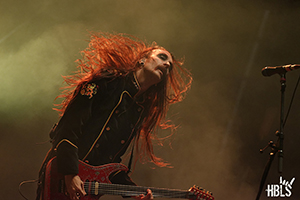
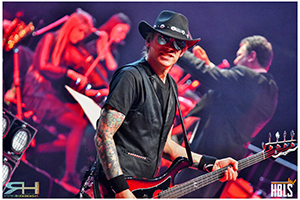

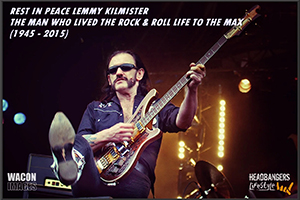
Comments